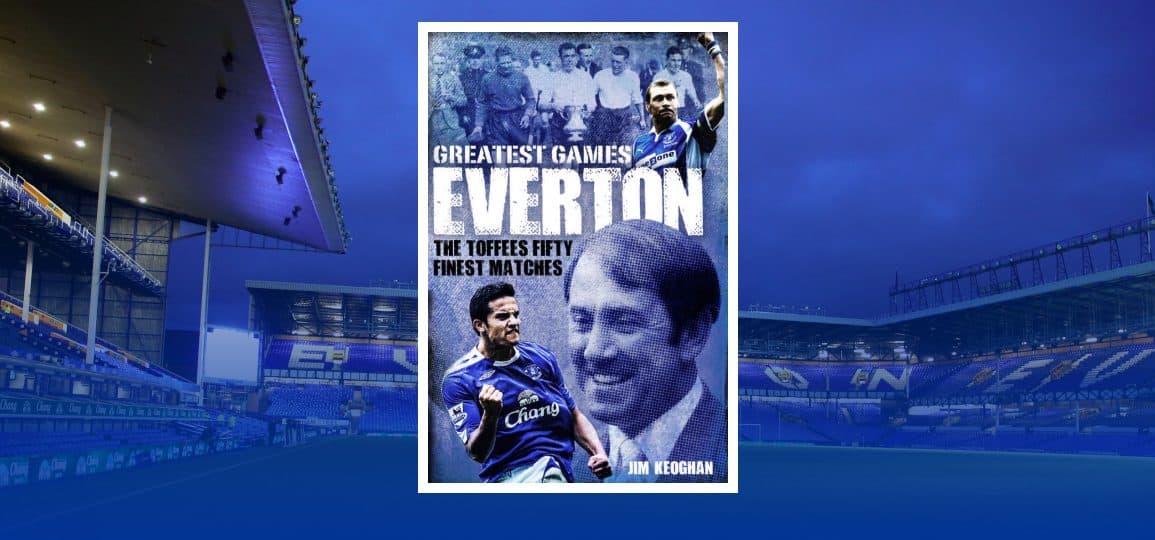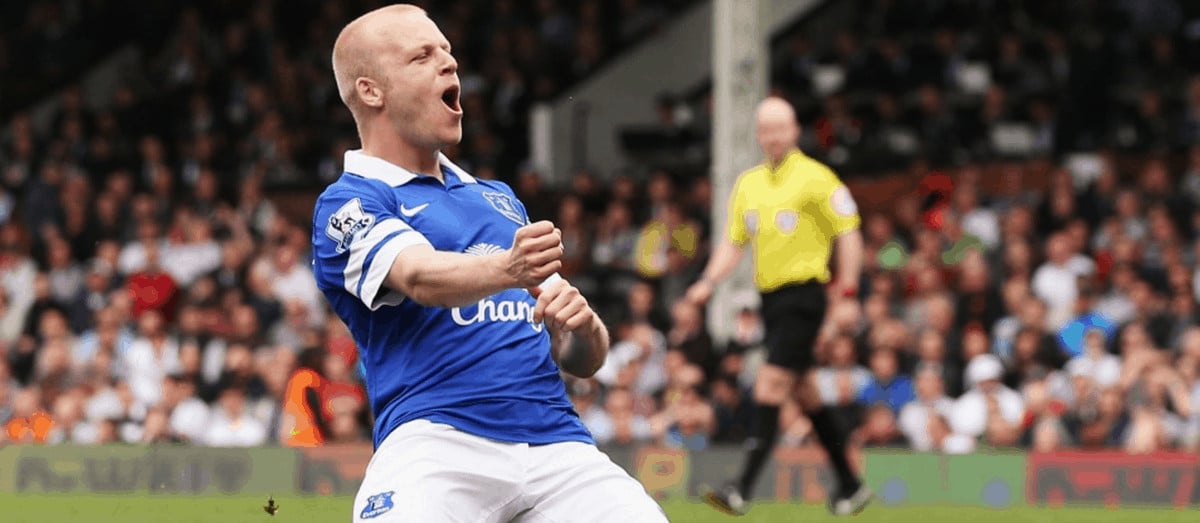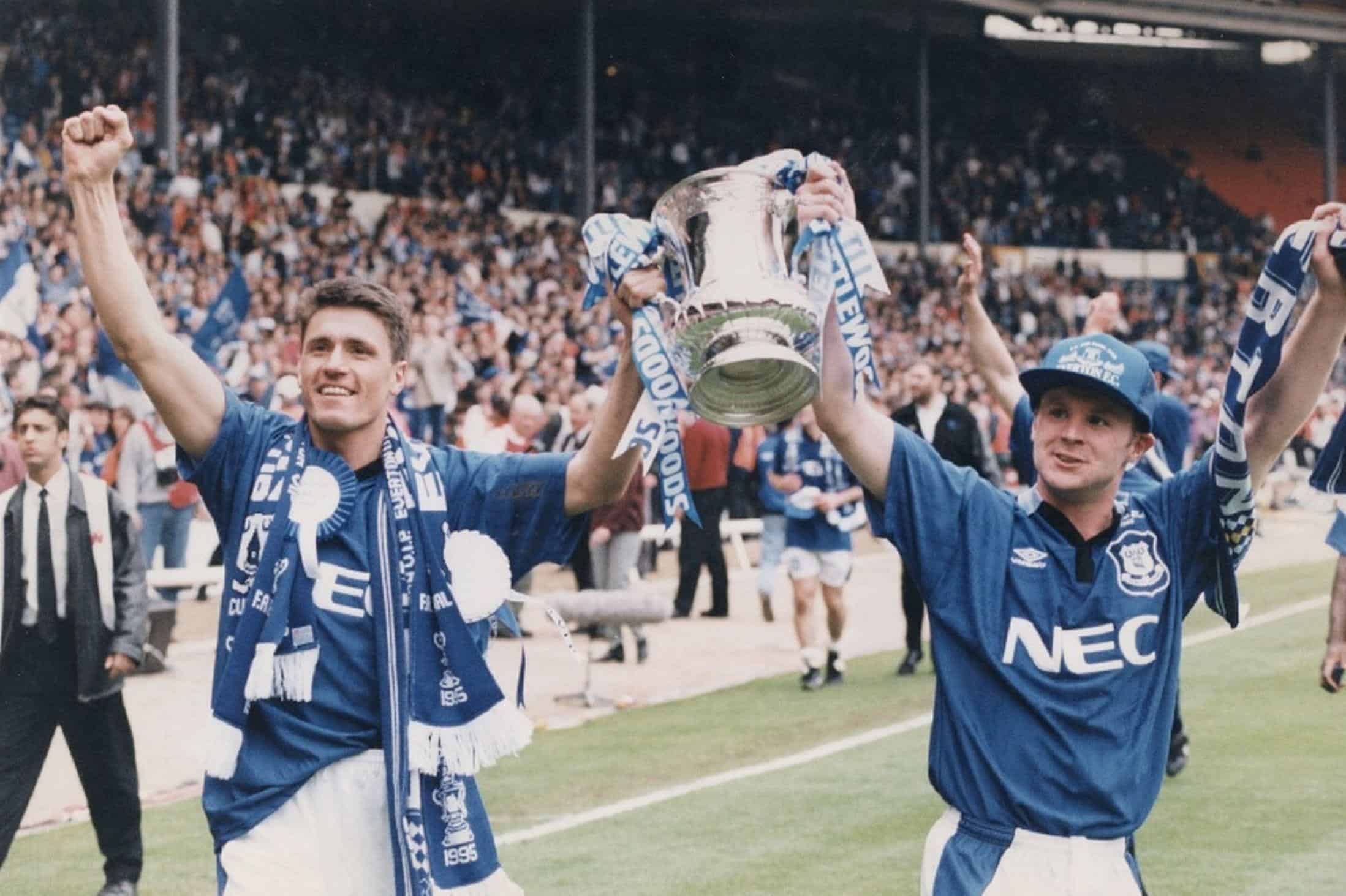What Makes A Great Game?
In late March 2014, on an overcast, yet clammy spring afternoon, my four year old son and I navigated our way past the delicatessens, the fusion cuisine restaurants, the pop-up Iberian cheese markets of South West London and headed toward Craven Cottage.
This was not the first game I had planned for Jamie. That should have been at Goodison. But cost, ticket availability and an unwillingness to take a four year old on a 600 mile round trip meant that, like many an offspring from our club’s wide diaspora, he would first see the Blues on foreign soil.
It was the business-end of the first Martinez season (or as it’s otherwise known, the ‘good Martinez season’). Flying high in the league, winning with ease and playing attractive, attack minded football, this was an Everton side that seemed to promise so much.
After making our way through the unerringly polite Fulham fans (all of whom appeared to be eating hot-dogs), we took our seats amongst our own, savouring the sights and sounds of the only part of the ground that appeared to contain any atmosphere.
As a jaded Blue, who in 35 years of following the club thought he had experienced pretty much everything football had to offer, I had sort of accepted that defining experiences were a thing of the past (or my past at least).
But I was wrong.
On that unremarkable afternoon, one on which an accomplished Everton side dispatched relegation threatened Fulham with ease (emerging 3-1 victors), I got to see the game through my son’s eyes; the excitement of the players coming out, the joy of being able to sing and shout amongst other fans, the delight of seeing your team score and win.
It felt new, novel, and defining. It was in short, a magical experience.
At the end of the 90, as we made our way once again through their fans, who remained happy and polite despite an anaemic performance and the prospect of almost certain relegation (perhaps those hot dogs had a palliative quality?), I felt happy in a way that was almost unrecognisable to me as an Evertonian, a sense of untarnished joy, with no undercurrent of anxiety or frustration.
But as wonderful as I felt, I am almost certain that no other Blue felt the same (unless they’d also been on the hot dogs). For them, it was simply an away win. Unquestionably a good one; but nothing to write home about.
And that’s the problem when it comes to defining a great game. So much of what we consider ‘great’ is wrapped up in how we experience a match. I loved that Fulham game, and to me it is my happiest moment as a Blue. But I doubt it would make the list of the top 500 Everton matches of all time.
The idea of what makes a memorable game is something that has consumed me over the course of the past year as I have knocked out Everton’s Greatest Games, a book that covers 50 such moments.
The knee-jerk answer is one that yields tangible success. It’s the matches when titles were won, FA Cups lifted, when a European trophy was brought home. And that is true. There is something undeniably special about opening the trophy cabinet and adding another trinket to the collection.
Because so few clubs, certainly in modern football, ever get to bring home silverware, it’s important to recognise Everton’s achievements. To win the league nine times, to hold aloft five FA Cups and to win a European trophy are markers of success that need to be celebrated. In football’s long history, we are amongst the lucky few to have periodically enjoyed success at the highest level.
But ‘success’ isn’t everything. Sometimes a game is simply magnificent on its own merit. There have been several occasions in the club’s history when without warning a match of outstanding quality has taken place (usually against Sunderland for some reason). The need to win sometimes robs fans of the simple enjoyment that football played well can provide. Luckily for us Evertonians, because we follow a club so well versed in the need to play the game ‘well’, instances of such quality have been relatively commonplace.
Other times, a game can be ‘great’ because of its emotional intensity. As an Evertonian who followed the club avidly in the 1990s I remember the narrow escapes from the jaws of death against Wimbledon in 1994 and Coventry in 1998 as being great occasions. They weren’t matches you’d want to go through again, they weren’t enjoyable and had the results gone differently, they would unquestionably have been awful games to attend. But the results went Everton’s way and so those attending got to sit through matches of incredible emotional intensity, where the future of the club was balanced on a knife edge. There was no trophy at stake, no title to claim, no terrace hero to lionise. But at the final whistle you knew you’d witnessed something momentous.
What struck me in compiling the games to include is the inescapable reality that achieving a consensus amongst Blues on a definitive list is near impossible. Beyond some of the obvious matches that make any list (Bayern, the Andy King Derby, Spurs 95), when it comes to choosing the rest, so much is dependent on your age, how you felt about the club at the time, what you regard ‘success’ to mean.
I doubt any group of Blues could get together and come up with a top 50 that everyone agreed on. Through the ups and downs, the highs and lows, the good times and the Mike Walker times, there are simply too many moments for us to choose from for consensus to exist.
The book I have put together is just the 50 I went for. Some (hopefully most) you’ll agree on. Others you might not. But whether you’re always on board or not, you won’t be able to deny that they (mostly) show our club at its unquestionable best.
Everton’s Greatest Games: The Toffees 50 Finest Matches is out on 2nd October




